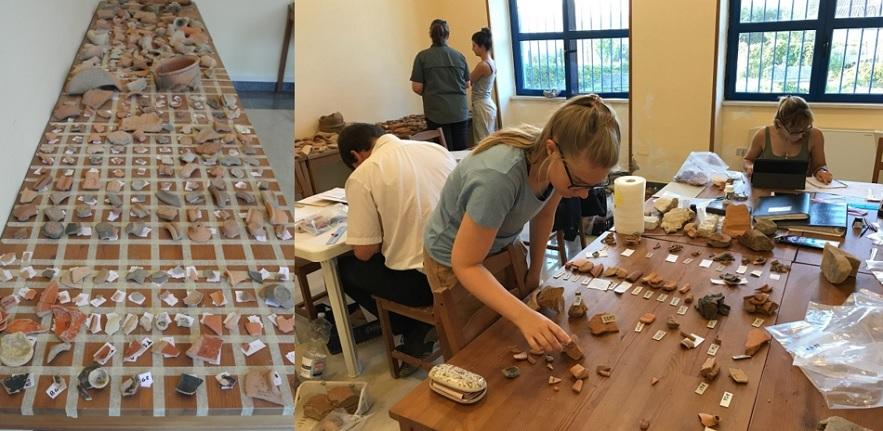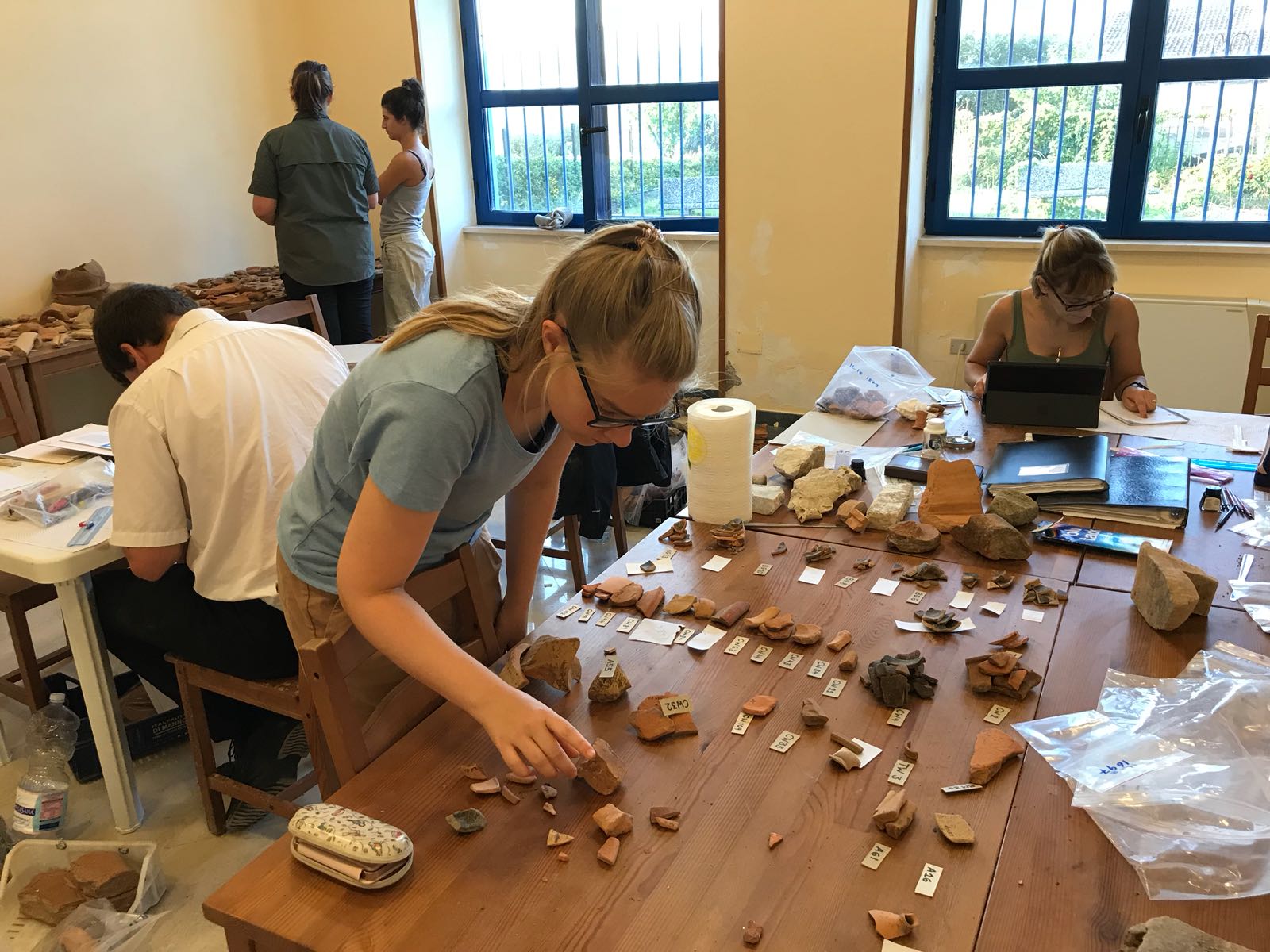
Submitted by Administrator on Thu, 25/02/2021 - 09:11
Archaeologists Alessandro Launaro, Senior Lecturer, and Ninetta Leone, Research Associate, have been working as members of the Cambridge MACH group to develop mathematical approaches to the classification of Roman pottery, part of the “Unveiling the Invisible” project funded by the Leverhulme Trust.
The Mathematics for Applications in Cultural Heritage (MACH) research group combines the expertise of mathematicians with those of art historians, conservators and archaeologists. Principal Investigator Carola-Bibiane Schönlieb, Professor of Applied Mathematics, and Simone Parisotto, Research Associate, both based at DAMTP, use image analysis and processing for art restoration and conservation, to digitally investigate hidden data relations on art objects.
Since 2010 Alessandro and his team of Cambridge Classics students have collected a considerable amount of commonware pottery – day-to-day earthenware – whilst carrying out their research at the Roman town of Interamna Lirenas. This has presented them with the daunting task of analysing and cataloguing tens of thousands of potsherds in order to better comprehend how occupation at the site may have developed over the centuries.
Fineware are the more refined and standardized pieces of Roman pottery, and are well documented in existing comprehensive catalogues. In contrast, although commonware makes up the majority of pottery finds at most archaeological sites, their sheer variance in terms of types and shapes has always presented a significant challenge to their study. The MACH group is therefore developing a specific MATLAB software based on deep learning algorithms so as to identify formal similarities and produce a more systematic classification.

To populate the pottery database Ninetta collected thousands of profiles of commonware pottery types identified at various sites in Western Central Italy (including Rome, Ostia and Pompei). To date around 5,000 profiles have been included. By identifying relationships between the commonware types, unsupervised deep learning algorithms extract relevant shape features in order to group said types into ‘families’. This new database will allow Alessandro and Ninetta to better map the development and spread of Roman commonware not only at Interamna, but throughout Central Italy.
Once completed, the commonware pottery reference database will enable more detailed studies of an often overlooked side of archaeology.
Read more about the MACH initiatives as part of the Unveiling the Invisible project and in collaboration with MATLAB: AI Unveils the Secrets of Ancient Artefacts - Using Deep Learning and Image Processing to Restore and Preserve Artwork
